It was a season when miracles seemed possible, when even Alex Ferguson was reduced to exclaiming “Football. Bloody hell” and when Manchester United seemed to be getting their scripts direct from the pages of Roy of the Rovers.
No wonder the 1998-99 campaign has inspired so much analysis and investigation of the spellbinding fashion in which the Old Trafford club, spearheaded by their master motivator Ferguson, swept to an unprecedented Treble by winning the Premier League, the FA Cup and the Champions League titles in the space of a few weeks.
Even now, plenty of the drama, which has been expertly depicted in Matt Dickinson’s new book 1999: Manchester United, the Treble and All That, sounds implausible.
In the Nou Camp, with 90 minutes on the clock, their dream of beating Bayern Munich appeared to be withering on the vine. Yet, against all the odds and in circumstances which would have been dismissed as unrealistic by Hollywood, they scored not only once, but twice to turn the contest on its head in a coruscating finale.
As the author reminds us, the triumphant scenes which erupted after that thrilling denouement were a far cry from the myriad concerns around the club less than 12 months earlier. When the season commenced, United were up for sale, their rivals Arsenal were the reigning Double winners and David Beckham was treated as a national hate figure with effigies of him being burned after his red card at the 1998 World Cup.
Ferguson’s future
Even Ferguson’s future came under scrutiny and the book relates how he tendered his resignation in July, as the prelude to United chairman, Martin Edwards, responding: “Well, if that’s the way you feel, Alex, we’ll have to accept it.”
Fortunately, for both parties, a peace treaty was brokered and then the magician weaved his spell.
We’re told, in a way which raises goose pimples, of how the same man who orchestrated Aberdeen’s European glories in the 1980s addressed his players: “Some people want to go to Blackpool for their holidays. You boys have the chance to fly to the moon.
“Not many people can do it, not many people are ever in a position to do it. Some don’t even want to do it. I can’t understand that. You can fly to the moon….build a rocket, boys!”
It was scintillating stuff, yet despite a hectic fixture schedule which took its toll on the United personnel, there was a reminder that Ferguson had never forgotten his connection to the north-east, nor the unheralded figure who had toiled away behind the scenes, out of the spotlight, to ensure the Dons became a force to be reckoned with.
Here is one of the most striking reminders of the contradictions in the fabled manager’s psychological make-up. On a bad day, he could leave his players, opponents and journalists alike feeling as if they had just endured a bad night with the Borgias.
But there was another side to him, a sentimental kernel, lurking beneath the surface and Ferguson displayed that when he brought a full-strength United team, including Peter Schmeichel, Beckham, Paul Scholes, Dwight Yorke, Andy Cole, Ole Gunnar Solskjaer and Ryan Giggs to Pittodrie on a winter’s night in January to pay homage to Teddy Scott just a few days before United tackled Liverpool in the FA Cup.
Even at this distance, it was a reminder of how Ferguson valued hard graft and staying true to your roots. As Dickinson said: “Entering such a critical time of the season, it is extraordinary that the entire United squad should fly through a storm into Aberdeen Airport to play in a testimonial game for a man none of the players had heard of.
“But Ferguson had made a commitment for the testimonial for Scott, who had played just one first-team game for Aberdeen in the 1950s before becoming reserve-team coach, kitman and the guy who, almost single-handedly, kept the club functioning.
“In Ferguson’s time as manager at Pittodrie, he would arrive some mornings and find Scott sleeping on the snooker table in the club bar because he had been working too late to catch a bus home. (And this happened not for months or even years, but decades).
“It’s unthinkable that this testimonial, involving such a strong United XI, would be squeezed into the mid-season calendar now – unless there was a lucrative sponsorship deal behind it – but Ferguson hoped that there was a life lesson for his players.”
In bare statistical terms, Paul Hegarty ended up collecting his first and only piece of silverware after just six matches in charge of Aberdeen when they defeated Manchester United 7-6 on penalties to lift the Teddy Scott Memorial Trophy.
But, more importantly, the occasion gave Fergie and his band of millionaire superstars the opportunity to regale the sell-out crowd with the sort of pyrotechnics which brought the packed-out crowd to their feet as the contest gradually developed.
The fans lapped it up, but appropriately the biggest cheer of the night was saved for Teddy Scott when he was introduced to both sets of players just before kick-off.
And the way in which he was embraced by Ferguson told its own story of the humanity which had developed between these two redoubtable characters.
As Dickinson recorded: “When Scott died in 2012, Ferguson was there to speak at his funeral. ‘Loyalty should always be recognised and rewarded,’ he said.”
Even in the midst of making history, he was committed to helping his old friend.
1999: Manchester United, the Treble and All That is published by Simon & Schuster.
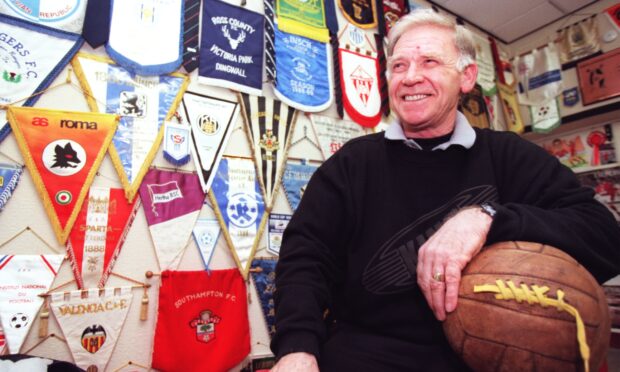
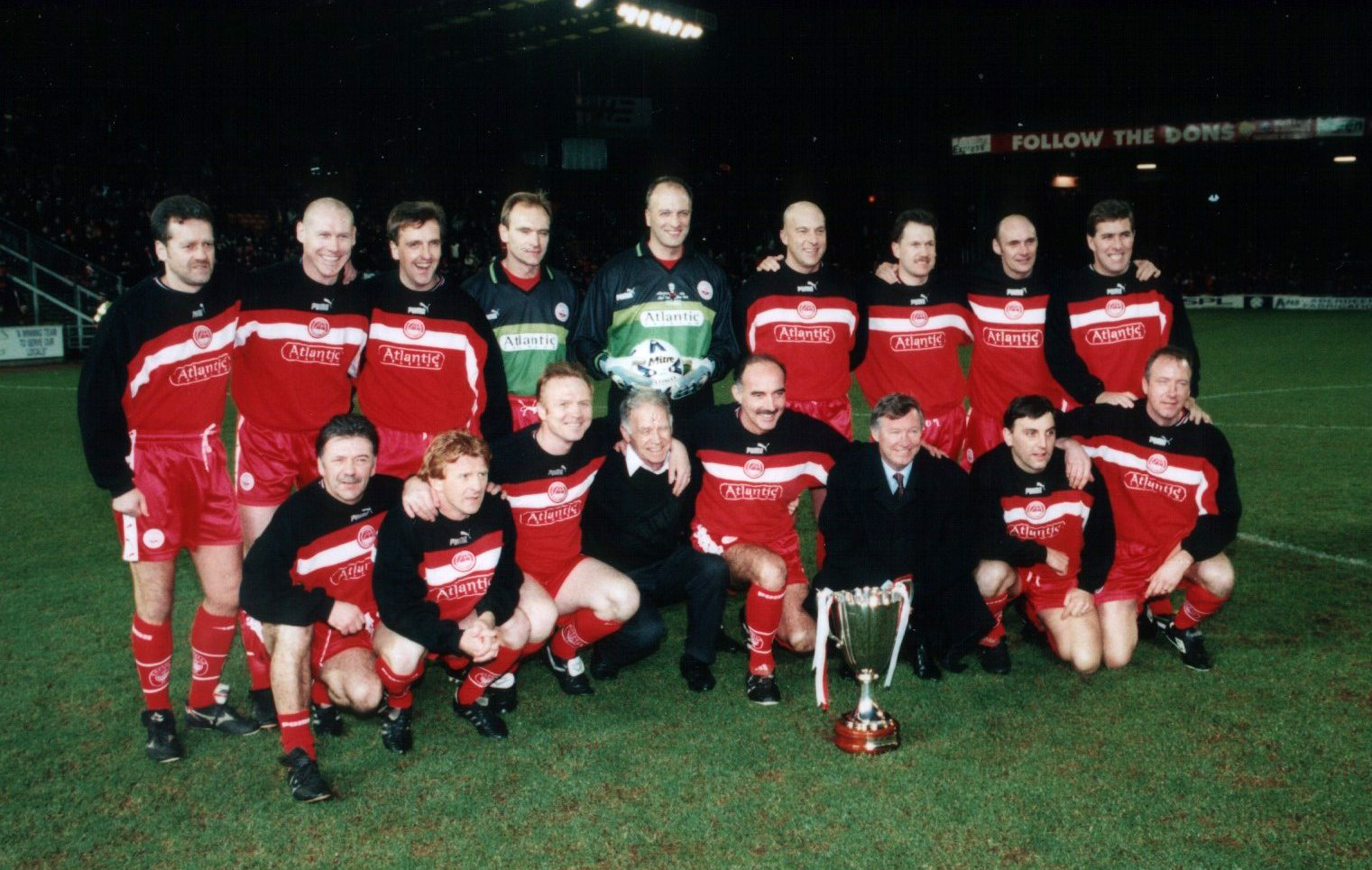
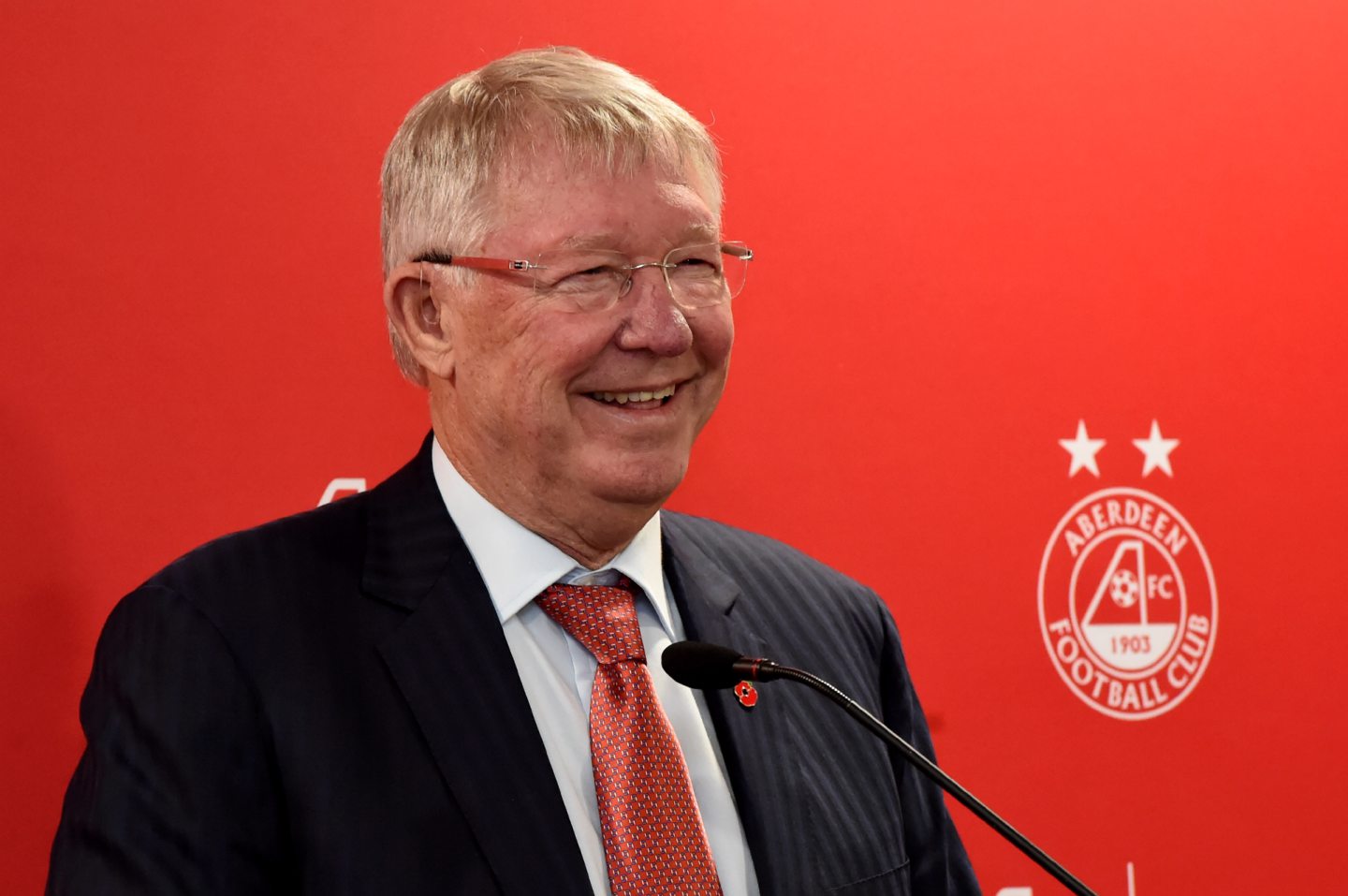
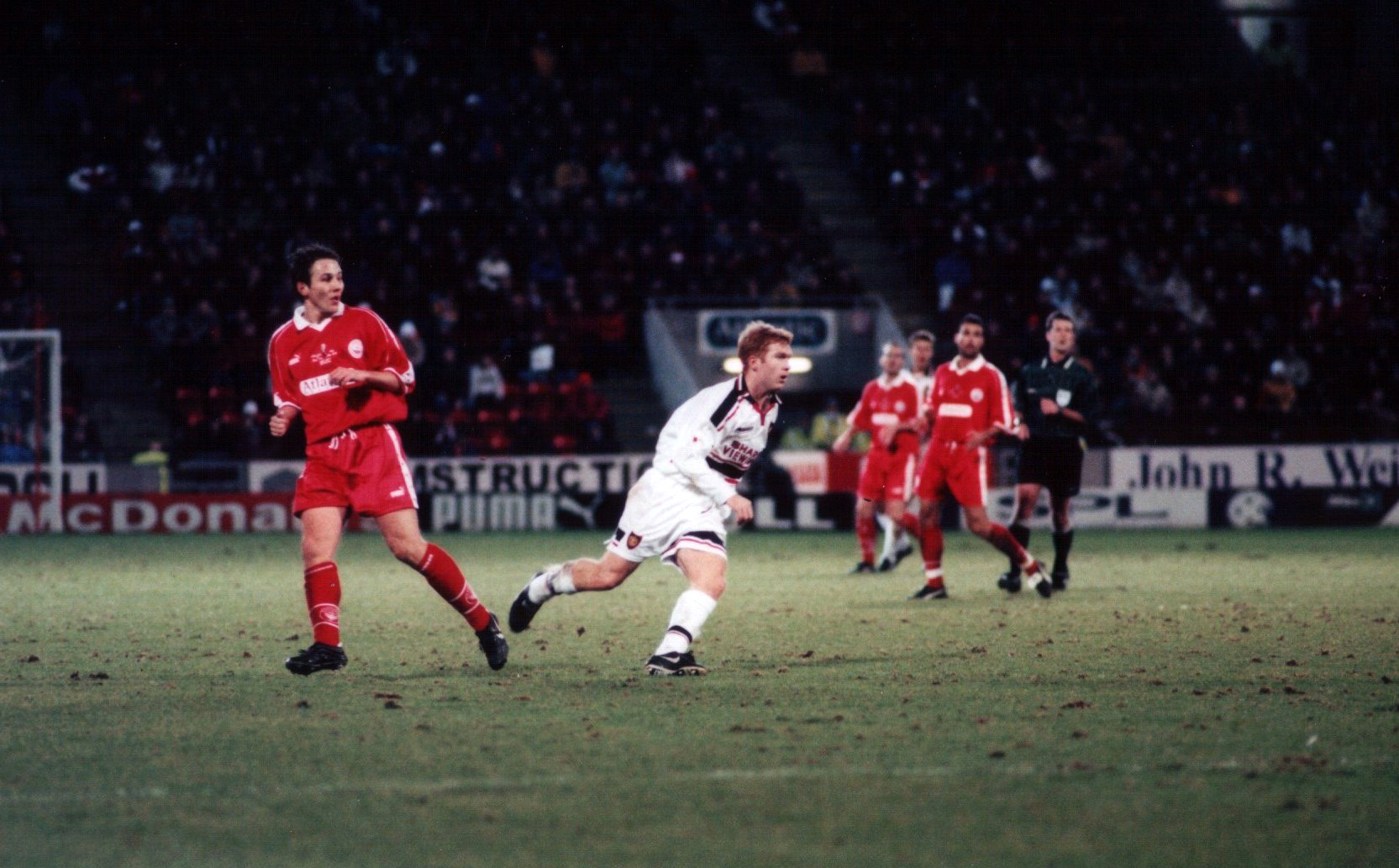
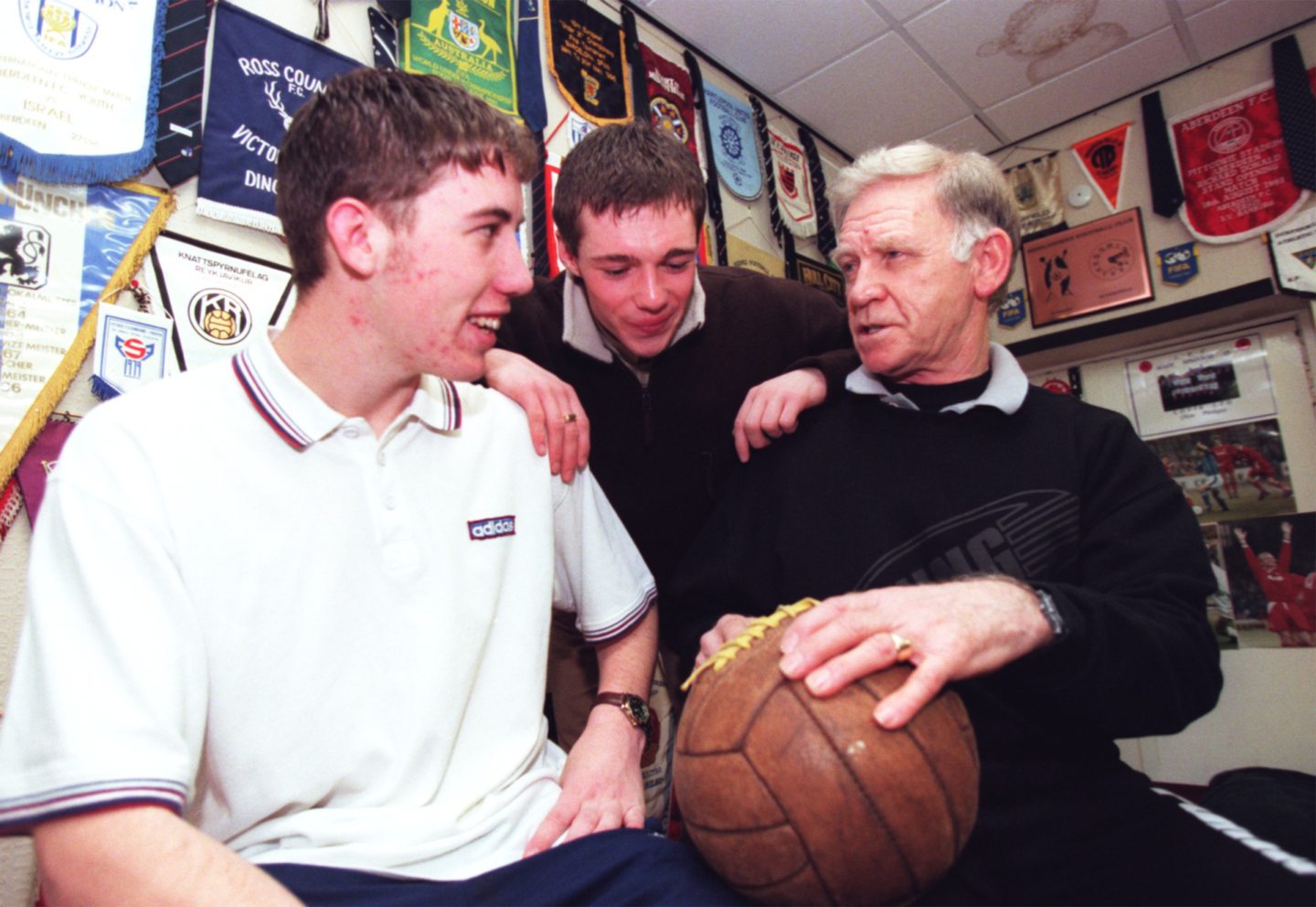
Conversation